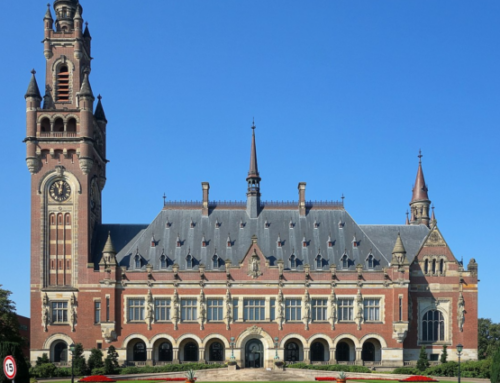 When a disaster strikes far away and good-hearted people try to help, are they on the pathway to progress or that road paved with good intentions?
When a disaster strikes far away and good-hearted people try to help, are they on the pathway to progress or that road paved with good intentions?
I returned to Kabul in early March 2002, a few months after the allied invasion, but Sven got there first.
He was a contemplative Swede who resembled a tall, aristocratic hussar from the age of Gustavus Adolphus. Amid the refugees in Pakistan twenty years before, he had started The Swedish Committee for Afghanistan where he ran important agricultural missions over the border and behind the backs of the invading Red Army. He was one of a fearless handful who stopped the US Government from hushing up a famine and thus saved countless Afghan lives, but that is a story for another day.
Sven was No. 2 at the tiny UN mission. In his practical, unflappable, Scandinavian manner he tried to help organise post-Taliban emergency relief, support the confused and devastated Afghan government, introduce various newly-arrived donors who had little idea of how to help, coordinate humanitarian assistance from the coalition forces and so forth.
Then the satellite telephone rang from the Pakistan aerodrome where the UN chartered airplane was based. In those early days, the UN flights were virtually the only way in which civilians could reach Kabul unless one drove up through the Khyber Pass.
“Mind if we fly the actresses up to Kabul?” crackled a voice. Sven went outside because, even at ten dollars a minute, the sat-phones never seemed to work indoors.
“Actresses?” puzzled Sven. “What actresses?”
“You know. The actresses,” said a South African pilot as though he were going to tell the one about the actress and the bishop.
Sven asked him to explain. An Afghan radical feminist group, once friendly to the Afghan communist regime but now based in California of course, had made friends with some American actresses and they were all coming to war-torn Kabul to perform a play entitled “The Vagina Monologues.” Hadn’t he heard of them coming? The Swede sighed deeply: no he had not.
One gathers that the play revolves around Western women speaking in public about their formerly private parts, supposedly at length and in some considerable detail no less. As the German political philosopher Jürgen Habermas might say, it connects the public sphere with the pubic.
The Californians assumed that performing this play in Kabul would somehow advance the condition of Afghan women, presumably by encouraging them to natter about their nether regions. But few foreigners knew Afghans and their culture better than the Swede.
“Listen carefully,” Sven replied evenly. “If you let them onto the UN shuttle to Kabul, do not worry about the Taliban shooting down the plane because I will shoot it down first. Am I sufficiently clear?”
“Roger that,” answered the pilot. Sven packed up his laptop and called it a day, returning to his cold, bare, guesthouse room, as he put it, “convinced that I had done my duty to Afghanistan.”
Somewhat unexpectedly, the theatrical troupe pitched up in Kabul three days later having taken the bus from Islamabad to Peshawar, through the Khyber Pass, across the border to Jalalabad and onward, probably passing the remnants of the Taliban heading the other way. Thereupon the American actresses and the Afghan feminists broke into two working groups, the first trying to hire a venue available somewhere in Kabul’s non-existent theatre district, and the other trying to translate the script which first required finding an English-Pushtu gynaecological dictionary, itself no easy feat.
“There was nothing I could do,” Sven recalled helplessly. “I wasn’t the government. I’m not even an Afghan. I’m just some guy with the UN.”
In the inscrutable but fully dependable ways of the East, word soon percolated up to the recently-appointed Afghan cabinet minister for women. One might assume, given the purportedly low status of Afghan females, that she would be reticent, retiring, or perhaps even submissive, in which case one would be profoundly mistaken and with knobs on. She summoned into her office the gringa thespians and the Redondo Beach Afghan feminists, beginning her lecture even before they got their obligatory cup of green tea.
“Listen up…ladies,” she is said to have begun icily, emphasizing the final word as if she entertained some reasonable doubt. “This supposed play is certainly neither consistent with Afghan culture nor with mine, at least so long as I manage to keep turning oxygen into carbon-dioxide. Get it?” The visitors stared in horrified silence, assuming perhaps that Her Excellency the Minister had called them in merely to pass the time of day chatting about her reproductive apparatus.
“Furthermore,” the Minister continued, “if you wish to scandalise everyone, poison their view of our Western allies, bring back the Taliban by popular acclaim, stop little girls from going to school, and kill off any hope for the advancement of Afghan women, you are going about it in the ideal way. Are you with me so far…girls?”
Being basically good-hearted souls, the visitors stared at the ceiling and shuffled their feet ashamedly as one began to blow her nose into a wadded-up tissue paper.
“We…we…thought it…might…help. We didn’t (gulp) come here to bring back the (sob) Taliban!” an actress choked helplessly as her friends consoled her.
“Good,” the Minister continued brusquely, over-enunciating her words for effect. “Now then, I recommend…no, let me rephrase that…I recommend most strongly that you eat some of our delicious Afghan kebabs, buy a souvenir carpet, and go back promptly to wherever it is that you have come from before you do us any serious damage.” The wide-eyed visitors nodded sombrely.
The Minister fixed them in her steeliest gaze and deployed her most acid tone: “But if I hear a single, solitary word that you are performing this play in Kabul, this play in which women talk in public about their…well, never mind…I will ring the Minister of Interior and, mark my words, his police will dribble you like basketballs to the Pakistan border and…bounce…you…across!”
Then she smiled sweetly, craned over her china teacup and purred: “Now, dears, could I possibly be more clear?”
Snuffling penitently because they were basically good-hearted souls, the visitors apologised once more, shook hands with the Minister and made their way to Shar-i-Nau, a fashionable part of town offering delectable kebabs, and probably went from there to Chicken Street to buy handsome Afghan carpets hand-made of buttery, lanolin-rich wool dyed in the luminous colours of medieval stained-glass windows. Either way, on the next day they were nowhere to be seen. Nothing remained of the cultural liberation force apart from a table in their guest-house containing an abandoned English-Pushtu gynaecological dictionary.
I went along with a client, who happens to be an old university friend, to the American Embassy to meet the acting-head of USAID to see if we might help. The vast steel plates, welded over the doors and windows after the diplomatic mission had been sealed and abandoned during the final weeks of the Soviet occupation, had been removed recently and the building had been given a good airing by the loyal Afghan staff, all of whom had been intimidated and many of whom had been tortured by the communists for their American affiliations. Like most Afghans, they remained true.
We picked our way around the sleeping bags and bed-rolls that crowded the floors and landings–more than one hundred diplomats slept on the hard marble embassy floors and shared but two lavatories, for the airlifted Porta-potties and Winnebagos came later. The USAID director looked dog-tired and harried, as they all did.
“I can get money for eliminating poppy or for educating women, but nothing else,” he explained miserably.
“Just women? Don’t boys need education too?” I asked, and he bit his lip. I added: “How about drinking water? Roofs? Blankets? Security? Democracy? Medicine? Economic policy? Sanitation? Electricity? An occasional lunch, perhaps?”
“Dope and women are the only popular issues on Capitol Hill,” he sighed, wringing his hands. “America doesn’t know anything else about Afghanistan, nor do America’s elected leaders care about anything else.” He urged us to check back in six months, after he had retired prematurely from government service.
I thought back to Kiwi Bob, Kabul’s director of The Red Cross Federation in the early 1990s. An renown mountaineer and polar explorer, the massive New Zealander’s first humanitarian crisis had been the Bangladesh famine of the early 1970s. “It’s funny what goes missing in a real disaster, but it’s virtually everything,” he said, remembering hundreds of thousands of starving people, tons of rice available, but no scoops with which to dole it out. Fortunately the Soviet Union, in its own self-serving way, had contributed a cargo plane loaded full with World War Two, Red Army surplus, khaki canvas, under-wired brassieres of impressive proportions. Of course they were quite useless unless cut in half, then each could dispense a full day’s ration of rice. He recalled: “If those Russian women had smaller tits, people would have died.”
Then I remembered Peshawar in the 1980s and the gift of a kindly American church group, a pallet-load of canned Spam, processed pig-meat for the Muslim refugees. Afghan refugee leaders took a hard look, shook their heads and said “We’re hungry, thanks, but we’re not that hungry yet,” and so it sat at the airport uncollected for years. Next to it rested a huge bale of electric blankets intended for refugees in camps powered by kerosene. No doubt, thanks to Afghanistan’s well-meaning, Californian benefactors, copies of “The Vagina Monologues” would soon arrive and, once in the bazaars, their single, torn-out pages would wrap portions of popular local snacks for years to come.
I wanted to ask the USAID official if some countries are so insular, so out of touch with the outside world, that they are better suited to just staying at home and minding their own business, but he seemed upset and I felt that I knew his answer already.
Books on the people and topics discussed in this essay, “Gringo Degringolade,” may be found in The Imaginative Conservative Bookstore. The Imaginative Conservative applies the principle of appreciation to the discussion of culture and politics—we approach dialogue with magnanimity rather than with mere civility. Will you help us remain a refreshing oasis in the increasingly contentious arena of modern discourse? Please consider donating now.







Brilliant,Steve. Brilliant, hilarious, and sobering. Thank you.